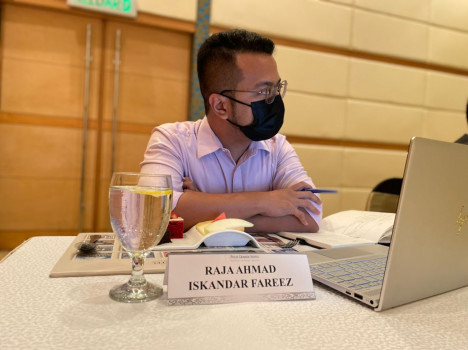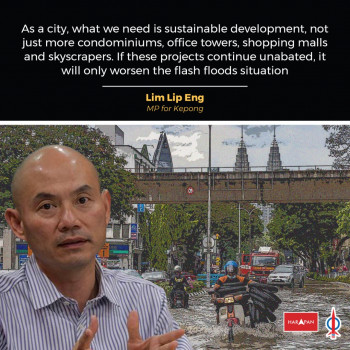This is Amnesty International and Suaram’s analysis of Malaysia’s recent Universal Periodic Review at the Human Rights Council.
Malaysia’s recent pledge to “keep pace” its “development of civil and political rights in the country” with “progress made on economic, social and cultural rights” appears like an empty promise, Amnesty International and Suara Rakyat Malaysia (Suaram) said today, following Malaysia’s review by UN-member states at the Human Rights Council on Oct 24.
As highlighted by 103 UN-member states at Malaysia’s second Universal Periodic Review (UPR), much of the previous recommendations made during the 2009 UPR still holds, while new areas of concern are emerging. Human Rights concerns include Malaysia’s poor ratification of core international human rights treaties; restrictions on freedoms of expression and peaceful assembly; the preventive detention of criminal suspects for long periods of time without charge or access to a judge; human rights violations at the hands of the security forces including torture and other ill-treatment; and the retention of the death penalty, particularly mandatory sentencing for drugs and other non-violent offences. Other concerns include the treatment of migrant workers, indigenous peoples, refugees and asylum-seekers, as well as freedom of belief and religion, LGBT rights and discrimination.
Malaysian government representatives present at the review failed to adequately respond to many of the questions raised by UN member states and were unable to give clear action plans or timelines on many of the key issues. In line with recommendations made by UN-member states, Amnesty International and Suaram recommend that the Malaysian government pay upmost attention to the recommendations made during its second UPR, accept them all, and take concrete and effective steps to implement them at the earliest opportunity.
1. Poor ratification of international human rights treaties
In its October 2013 UPR, at least 33 States raised concerns about Malaysia’s poor treaty ratification record or made recommendations for Malaysia to ratify the core human rights treaties.
Despite an initial pledge made in 2009 to “consider ratification” of key international human rights instruments, Malaysia has yet to ratify core human rights treaties, including the International Covenant on Civil and Political Rights (ICCPR), the UN Convention Against Torture and other Cruel, Inhuman and Degrading Treatment or Punishment (UNCAT), the Convention on the Elimination of All Forms of Racial Discrimination (CERD), and the International Covenant on Economic Social and Cultural Rights (ICESCR). Malaysia has also yet to ratify the Rome Statute of the International Criminal Court, the 1951 Refugee Convention, nor the International Convention on Protection of Migrant Workers and their Families.
After the 2009 UPR, the Malaysian government stated that it was “progressively studying the proposal to ratify the ICCPR and CAT and would be in a position to do so once major issues related to the legislative framework are resolved.” Yet, four years later, Malaysia has yet to ratify these treaties. There was no mention of any progress on this during the second UPR.
In its state report to the Human Rights Council on August 2013, Malaysia stated, “[b]y the end of 2013, the Interagency Standing Committee (IASC) on human rights is expected to conclude its work and to submit its recommendations concerning Malaysia’s accession to the International Covenant on Economic, Social and Cultural Rights (ICESCR).”
Although ratification of the ICESCR would be a key step towards better protection and promotion of human rights in Malaysia, the authorities should also ensure that other key human rights treaties such as the ICCPR and the UNCAT are ratified at the earliest opportunity to ensure better protection of civil and political rights, including the right to a fair trial, prohibition against torture and other ill-treatment, and respect for the rights to freedom of expression and assembly.
While neighbouring ASEAN states such as Indonesia, the Philippines and Thailand have ratified the International Covenant on Civil and Political Rights (ICCPR), and the Convention on Torture and Other Cruel, Inhuman or Degrading Treatment (UNCAT), Malaysia’s progress in core human rights treaty ratification has stalled for many years.
2. Limited space for freedom of expression and peaceful assembly
In July 2012, before national elections, Malaysian Prime Minister Najib Razak pledged to repeal the Sedition Act. Australia, the Czech Republic, the United States of America and the United Kingdom took note that this promise remained unfulfilled during the UPR.
Other laws such as the Communication and Multimedia Act 1998, the Printing Press and Publications Act, the Official Secrets Act and the Evidence Act have provisions which continue to curtail free speech, and have yet to be repealed.
The Peaceful Assembly Act contains various provisions restricting participation in peaceful assemblies contradicting the 2013 state report, which claims that “[u]nder the PAA, the licensing requirement to hold an assembly had been removed.”
Eleven states – Austria, Canada, the Czech Republic, Denmark, Ireland, Japan, Poland, Russia, Slovakia, the United Kingdom and the United States of America – raised concerns or made recommendations on freedom of expression and assembly in Malaysia during its second UPR.
3. Preventive detention without judicial review
The August 2013 state report claims, “[w]ith the repeal of the ISA [in September 2011], the practice of preventive detention was effectively ended”.5 However, in practice, preventive detention continues with the Internal Security Act’s replacement, the Security Offences (Special Measures) Act (SOSMA) and the amended Prevention of Crime Act (PCA) which were passed in June 2012 and in October 2013 respectively.
Amnesty International and SUARAM are concerned that the SOSMA allows for incommunicado detention, which puts detainees at risk of torture, and detention without charge or trial. Recent amendments to the PCA, in practice, could also allow for indefinite detention without charge or trial. Further, despite the repeal of the ISA, seven detainees arrested under the law remain behind bars, without charge or judicial review.
During the UPR, Australia, Canada, New Zealand and the United Kingdom raised concerns about the continued existence of preventive detention or long term detention without judicial review.
4. Torture, ill-treatment and deaths in police custody
Torture and other forms of ill-treatment or punishment continue to be practiced in Malaysia, for example, through judicial caning or whipping of convicted criminals and irregular migrants. However issues related to torture, did not feature in the state’s report to the UPR. This reflects a worrying trend of inaction by the Malaysian government to ensure that policies are in place to prevent and combat torture. It also demonstrates that Malaysia has yet to acknowledge some of the human rights violations which take place at the hands of the police, such as custodial deaths or unnecessary and excessive use of force at the time of arrest, and has yet to take adequate steps to ensure that there are strong accountability mechanisms in place to deal with complaints about such abuses.
At the UPR, 23 states raised concerns about torture, some of which specifically mentioning caning, or made recommendations in relation to ending torture. They include: Albania, Australia, Belgium, Botswana, Brazil, Costa Rica, the Czech Republic, Ecuador, Egypt, Finland, France, Guatemala, Ireland, Japan, Latvia, Lichtenstein, Netherlands, Poland, Slovenia, Spain, Switzerland, Tunisia and Uruguay.
States also raised concerns about police misconduct and deaths in police custody, which in many cases have been caused by torture or other ill-treatment. Some states made specific recommendations on investigations and the need for independent police oversight.
5. Retention of the death penalty
Malaysia continues to retain the death penalty, including as a mandatory sentence for drug trafficking. In 2012 the government announced a de-facto moratorium on executions, however, according to reliable sources, at least two people have been executed in 2013. These executions were shrouded in secrecy. Courts continue to impose death sentences.
During the 2013 UPR the Malaysian government delegation stated that the Malaysian Government is studying the “issues arising from the imposition of [the] death penalty” with a view of making recommendations on ways forward. At least 18 states – Albania, Argentina, Australia, Belgium, Bulgaria, Chile, Costa Rica, Cyprus, Ecuador, France, Mexico, Montenegro, Norway, Spain, Sweden, Switzerland, Ukraine, and the United Kingdom raised concerns about the death penalty and made recommendations on establishing a moratorium on executions, broadening the review of the death penalty, or eliminating mandatory death sentencing.
6. Conclusion and Recommendations
While Malaysia has repealed some restrictive laws in recent years, there are ongoing human rights violations, in part resulting from an inadequate legal framework. In order to ensure better protection and promotion of human rights, in particular in the area of civil and political rights, Amnesty International and Suaram recommend that the Malaysian authorities:
Ratify core international human rights treaties such as the International Covenant on Civil and Political Rights (ICCPR), the International Covenant on Economic, Social and Cultural Rights, and the UN Convention Against Torture and Other Cruel, Inhuman and Degrading Treatment or Punishment (UNCAT) without delay, and ensure that these provisions are fully incorporated into national legislation;
Establish immediately a moratorium on executions with a view of full abolition of the death penalty;
Amend immediately or else repeal the SOSMA and the amended Prevention of Crime Act to ensure that it fully respects international human rights law and standards, and release immediately all remaining ISA detainees, or else charge and try them with a recognisable criminal offence;
Amend laws which restrict free speech and the right to peaceful assembly such as the Peaceful Assembly Act, Sedition Act, Communications and Multimedia Act, Printing Press and Publications Act, Official Secrets Act and Evidence Act, and ensure that they fully respect international human rights law and standards;
Immediately establish a moratorium on caning with a view to eliminating judicial caning and other forms of torture and cruel, inhuman or degrading punishment;
Ensure that all criminal offences involving human rights violations by law enforcement officers, including unlawful killings, torture and other forms of ill-treatment, are promptly investigated through the criminal justice system and bring those responsible to justice; and
Establish an independent oversight body with specific mandate on law enforcement officers and situated outside of the Royal Malaysia Police to ensure that there is a clear, independent and impartial system to deal with complaints of suspected human rights violations by the police or other law enforcement agents.
* The views expressed in this article are the personal opinion of the columnist and this article first appeared in Free Malaysia Today.



